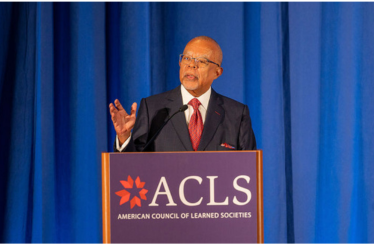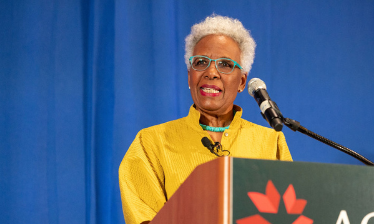Ania Loomba delivered the Charles Homer Haskins Prize Lecture at the 2024 ACLS Annual Meeting in Baltimore, MD on Friday, May 3, 2024.
Ania Loomba, the Catherine Bryson Professor of English at the University of Pennsylvania, College of Arts & Sciences, received her BA (Hons.), M. A., and M. Phil. degrees from the University of Delhi, India, and her Ph.D. from the University of Sussex, UK. Before coming to Penn in 2003, she taught at the University of Delhi and Jawaharlal Nehru University in India, the University of Tulsa, and the University of Illinois, Urbana-Champaign. She researches and teaches early modern literature, histories of race and colonialism, postcolonial studies, feminist theory, and contemporary Indian literature and culture. She is also faculty in Comparative Literature, South Asian Studies, and Women’s Studies, and her courses are regularly cross-listed with these programs.
Her first book, Gender, Race, Renaissance Drama, has been widely excerpted in subsequent collections. Her second book Colonialism/Postcolonialism, has been translated into Italian, Turkish, Korean, Indonesian and Japanese and gone through three editions. Her other books include Shakespeare, Race, and Colonialism (Oxford University Press 2002) and Revolutionary Desires: women, communism, and feminism in India (Routledge 2018). She has produced the Norton critical edition of Shakespeare’s Antony and Cleopatra ( 2011) and edited A Cultural History of Western Empires in the Renaissance (Bloomsbury, 2018). Her co-edited books include Post-colonial Shakespeares (Routledge, 1998); Postcolonial Studies and Beyond (Duke University Press, 2005), Race in Early Modern England: A Documentary Companion (Palgrave, 2007), South Asian Feminisms (Duke University Press, 2012) and Rethinking Feminism in Early Modern Studies: Gender, Race and Sexuality (co-edited with Melissa Sanchez; Routledge, 2016). She has also authored many essays on Renaissance literature, Shakespearean performances, early modern global contact, race, caste and feminist theory.







